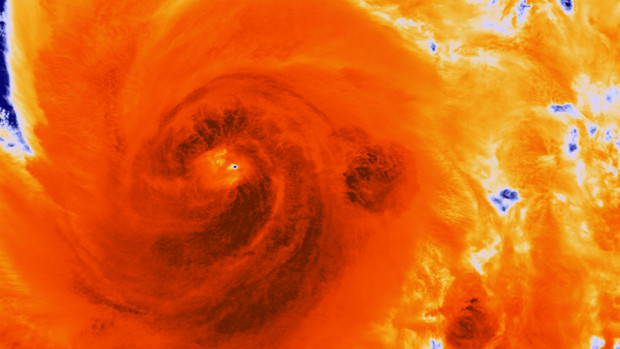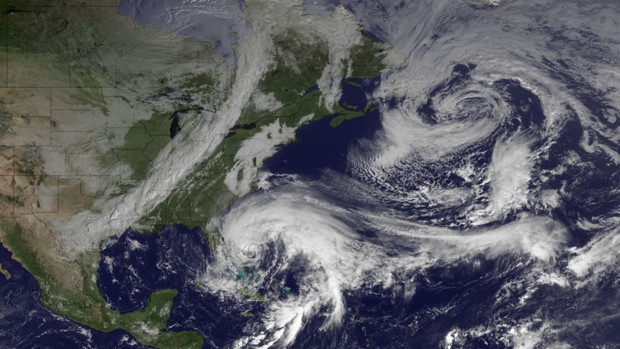In the future, Hurricane Sandy is invisible

With 60 million people expected to be impacted by Hurricane Sandy, days of advanced notice have allowed the New York governor to issue a state of emergency, evacuations to take place along the Atlantic coast, and (at least in my Washington, D.C. neighborhood) residents to clear the grocery store shelves ahead of the storm’s dangerous surge. But soon weather forecasters might not be able to provide us with details and predictions of dangerous storms.
That’s because there’s another looming problem in the United States that could be even bigger than Hurricane Sandy: dying satellites. The New York Times reports:
The United States is facing a year or more without crucial satellites that provide invaluable data for predicting storm tracks, a result of years of mismanagement, lack of financing and delays in launching replacements, according to several recent official reviews.
The looming gap in satellite coverage, which some experts view as almost certain within the next few years, could result in shaky forecasts about storms like Hurricane Sandy, which is expected to hit the East Coast early next week.

Basically, these satellites orbit the Earth from pole-to-pole and provide environmental data about the entire planet, making it one of the most important tools for tracking storms. It’s these satellites that have provided the clearest data on what Hurricane Sandy will do next. In fact, these polar satellites provide 84 percent of the data in the American computer model that tracks Hurricane Sandy. The Times says that without this satellite data forecasters would have miscalculated the massive winter storm that hit Washington, D.C. in 2010 by half. And you think your weather forecaster never gets it right now?
Storms will become less predictable in the near future because these satellites are getting close to or exceeding their life expectancies. A replacement, JPSS-1 isn’t expected to launch until 2017.
That’s not a good thing as storms will increase in intensity and frequency due to climate change. Ironically, these dying satellites also track important data on climate change.
You can return to the main Market News page, or press the Back button on your browser.

